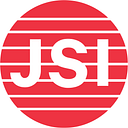Building a Community of Coders in Zambia: A Drive to Automate and Improve the Supply Chain Realized that People Were Critical to Sustainability
This story was first published by John Snow Health Zambia, Ltd. at https://johnsnowhealth.com/news-stories/
“We realized we had an opportunity to not just create a digital health solution for the global good, but invest in a community of software developers to learn to code, develop, and maintain this system,” explained Wendy Bomett, JSI’s director for management information systems for the JSH-led USAID Electronic Supply Chain Management Information System (eSCMIS) project. “Those skills could offer them greater economic advancement and career opportunities and those individuals could also support the Ministry of Health as Zambia takes complete ownership of the eSCMIS system.”
A national health supply chain serves as the backbone of its health program: enabling providers to have what they need, when they need it to serve their patients with high-quality care. The flow of essential medicines is reliant on high-quality data and integrated platforms that speak to one another. Essentially, systems that communicate the prospective demands in communities to national supply centers.
eSCMIS is a digital solution for the Zambian health supply chain. In the last four years, eSCMIS developed and implemented a next generation electronic logistics information management system, allowing the Zambia Medicines and Medical Supplies Agency (ZAMMSA) to more precisely tailor distribution of medical products based on use at facilities, increase agility and ability to pull stock due to expiry or recall, and reduce wastage in the supply chain.
Though its ability to automate health supply information is its greatest asset, eSCMIS is completely reliant on software developers to not only create but iterate and grow its use and effectiveness across the more than 2,600 health facilities it serves. The success and longevity of eSCMIS is completely reliant on the Zambians who build and maintain it.
The project has a stake in growing a community of Zambian software developers to sustainably maintain this high functioning health supply chain solution. Simultaneously, software development and software maintenance is an area where many young professionals aim to develop skills, as these skills can be applied to a large variety of career opportunities.
To further develop those skills, especially around software coding and troubleshooting issues, eSCMIS invested in a six-month internship program. Twelve interns, mostly women, intentionally recruited to ensure their growth in STEM career opportunities, graduated from the program. During the internship, they put new skills to use to adapt eSCMIS technology to the evolving supply chain demands of the Zambian health system.
“This internship program was an excellent way to gain practical experience in the field of software development and apply my skills in a real-world setting,” said Mchanga Kutemba, graduated program intern “Working on a real project and interacting with professionals has left a lasting impression on me.”
“The internship boosted my confidence and gave me courage,” said Kashiya Mwape, graduate program intern. “During my internship, I learned about relevant software and technologies, how to use them. and how to solve end-user problems. I also came to the realization that despite being a male-dominated field, females can excel in software development. The project laid a strong foundation for me and I am proud to have contributed to the eLMIS system which is saving lives in health facilities across the country.”
Ensuring sustainability of this system, creating a locally-grown Zambian workforce of software developers, and creating a community of developers for health that the Zambian ministry can tap into in the future has become the merged effect of this investment.
“We now have a broader community that understands basic logistics, data structure, and coding and they can come back and code in this open-source system when an innovation comes to mind,” said Wendy. “A growing number of Zambians now have these skills and every single one of them has moved on to an exciting job opportunity; they’re going wherever their career takes them now but they will always have a home here, too.”
